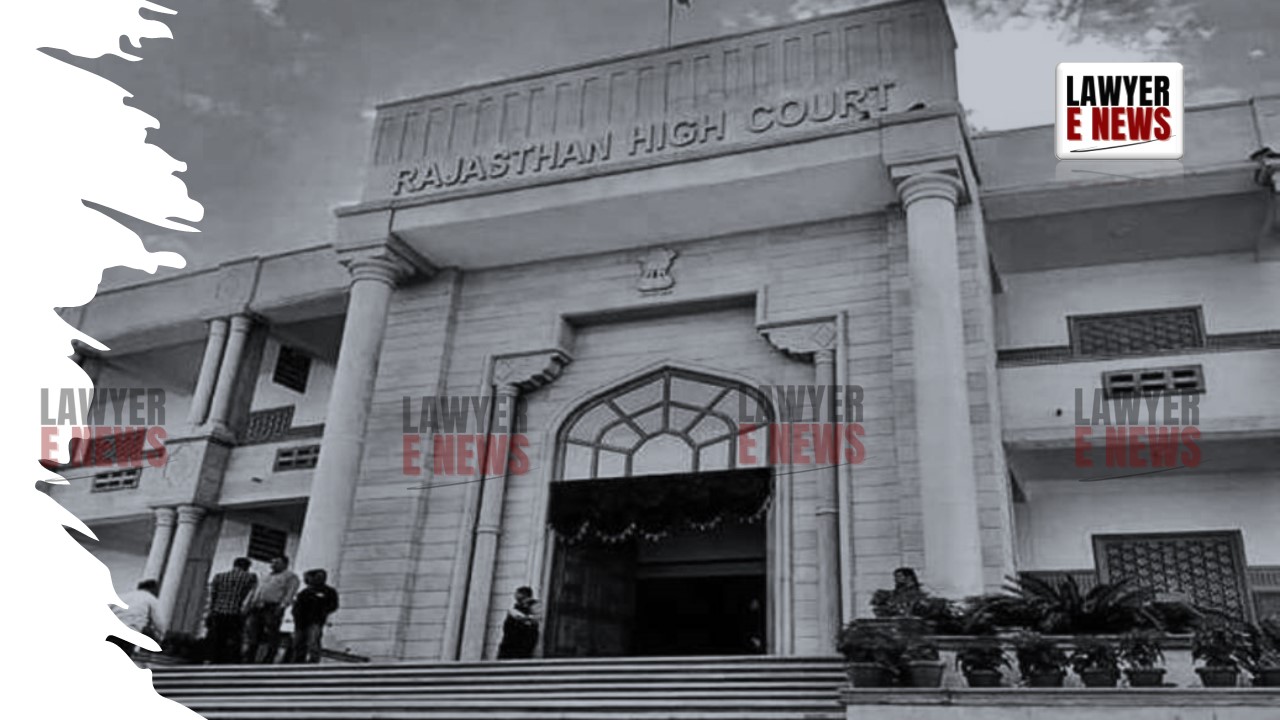-
by Admin
15 February 2026 5:35 AM



Fair Trial Requires Access to Relevant Evidence, Subject to Privacy Safeguards - Rajasthan High Court ruled in favor of an accused seeking tower location records of witnesses in a corruption-related trap proceeding. In Narendra Kumar Soni v. State of Rajasthan, Justice Anoop Kumar Dhand partly allowed the criminal petition filed under Section 91 of the Code of Criminal Procedure, 1973 (Cr.P.C.), ensuring that the petitioner’s right to a fair trial under Article 21 of the Constitution is upheld while safeguarding the privacy of the witnesses.
The case concerned allegations of false implication in a corruption case where the petitioner argued that critical witnesses were not present at the scene of the alleged trap. The Court directed the trial court to summon tower location records of two key prosecution witnesses, subject to privacy safeguards such as redacting unrelated call details.
The petitioner, Narendra Kumar Soni, challenged the order of the trial court, which had partially rejected his application under Section 91 Cr.P.C. for summoning tower location data of two prosecution witnesses, Sonu Meena and Jitender Meena, as well as other members of the trap team.
The petitioner alleged that the trap proceedings, initiated by the Anti-Corruption Bureau (ACB), were fabricated and the two witnesses were falsely shown to be present at the location. To disprove their presence, the petitioner sought the tower location data of their mobile phones.
While the trial court allowed summoning of the tower location data for the complainant and the Investigating Officer, it denied the request for data related to the two key witnesses, prompting the petitioner to approach the High Court.
Right to Summon Electronic Evidence: Whether the trial court erred in refusing to summon tower location records of key prosecution witnesses, which the petitioner claimed were crucial for his defense.
Balancing Privacy and Fair Trial: How to balance the right to privacy of witnesses with the accused’s right to access relevant evidence under Article 21 of the Constitution of India.
Admissibility of Electronic Evidence: Whether the petitioner was entitled to summon tower location data under Sections 65A and 65B of the Indian Evidence Act, 1872.
Relevance of Tower Location Records Under Section 91 Cr.P.C.
The Court emphasized that tower location data of the two witnesses was crucial to determine their presence at the scene of the trap on March 10, 2023.
"The tower location of the cell phones of these witnesses at the scene of the offence is a probable means to unearth the true facts during the course of trial," the Court stated.
The legislative intent behind Section 91 Cr.P.C. is to ensure that relevant evidence is made available during the trial. Denying such evidence would hinder the accused’s ability to establish his defense and amount to a miscarriage of justice.
Balancing Privacy and the Right to Fair Trial
While acknowledging that summoning mobile records could infringe on privacy rights, the Court held that the accused’s right to a fair trial under Article 21 outweighs privacy concerns when the evidence is critical for defense.
Referring to Suresh Kumar v. Union of India (2014 SCC OnLine SC 1833), the Court observed:
"Preserving and requisitioning call details and tower location records is necessary to uncover the truth. However, calling numbers and numbers called from the said mobile phones shall be redacted to protect privacy."
Admissibility of Electronic Evidence Under Sections 65A and 65B of the Indian Evidence Act
The Court emphasized that electronic records, such as tower location data, are admissible in criminal trials under Sections 65A and 65B of the Evidence Act, provided the statutory requirements, such as certification, are met.
"Denying access to admissible evidence violates principles of natural justice and undermines the accused's right to a fair trial," the Court observed.
The Court relied on the Supreme Court’s judgment in Suresh Kumar v. Union of India, which permitted the accused to summon tower location records while protecting unrelated call details.
The Court also referred to Kapil v. State of Rajasthan (2021 (3) Cr.L.R. (Raj.) 844), which upheld the accused’s right to summon relevant electronic evidence under Section 91 Cr.P.C.
Decision: The High Court partly allowed the petition and directed the trial court to summon the tower location records of the mobile phones of Sonu Meena and Jitender Meena for March 10, 2023, between 1:40 PM and 10:00 PM.
The Court directed that unrelated call details, such as numbers dialed or received, be blacked out by the telecom companies while providing the location records.
"This ensures a balance between the accused's right to access evidence and the witnesses' right to privacy," the Court noted.
This judgment highlights the judiciary’s commitment to ensuring a balance between privacy rights and the fundamental right to a fair trial. By permitting the summoning of tower location data with privacy safeguards, the Court has set a precedent for leveraging technology to uncover the truth in criminal trials.
Decision Date: January 7, 2025
